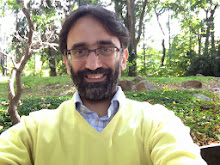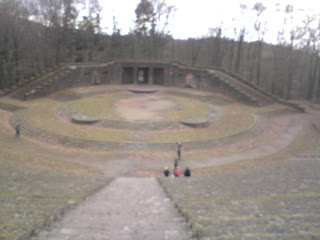
When Rudolf Botlamnn spoke about mythology in religious thinking and presented to scholarship the notion of ‘demythologization’, he rumbled the Christian theological scene. Yet, he also wiped a very think layer of dust off theology’s understanding of existence. Bultmann believed that whether Jesus of Nazareth existed once in history or not is not what really matters for the believer in the first place. What matters is what this Christ’s event means to the person in today’s reality, in the real ‘then’ and ‘here’ of being (Dasein). Thus, coming to terms with the meaning of the event called Christ in reality means actually coming to terms with the ‘real’ in this event; with this event’s core-reality. Be that as it may, ‘demythologization’ does not mainly state something about Christ’s historicity or non-historicity, but rather designates a concern about inviting the human to encounter reality and to be his and her Dasein via encountering in faith the event of Christ.
In this sense, demythologization is an invitation for standing in the real realm of existence; in the Da-sein, the ‘then’ and ‘here’ of the real world, of the realistic context of existence. The beginning of wisdom is, therefore, demythologization. It is just the beginning. Yet, it is the real, inevitable, even inescapable, beginning: demythologizing one’s self, one’s life, one’s belief and one’s disbelief alike, one’s view of the world and one’s relationships with the others. It is not an attack against historicity (Boltmann never said he is against the Quest of the Historical Jesus. he just thought questioned its relevance and structural textile). It is, rather, an invitation for existing historically, as well as, nevertheless, an invitation for realizing historicity by means of realizing that reality is what it is in its Dasein, not what one imagines it to be (mythologizes it) in one’s own mind. The same principle is applicable to the human position in relation to the world, to God, to disbelief in God, to the other etc. Demythologization means discerning the difference between these entities and their truth in one’s idealist mind (i.e. a difference that marks a distinction between Heidegger and Hegel, or between Boltmann’s disciples themselves: Käzemann and Konzelmann, on one side, and Ebeling, on another.)
When Jesus of Nazareth sent his disciples in mission, he asked them to enter the houses and reside therein. Yet, if came a time when their hosts happened to reject them, they should go out, wipe the dust of the city off their sandals and never look back. A strange, even provoking, demand from the one whose life and destiny are believed to reveal forgiveness, other-concerning and out-reaching spirit. One expects the Nazarene asking his followers to have patience, forgive their opposing hosts, to try again to win those who rejected them to the cause and to spend further time in the city to convince its people about the Kingdom of Heaven. To the contrary, Jesus said “who refuses you, refuse him back. Who says to you ‘get lost’, say back to him ‘get lose too’ and the erase the traces of your visit to his place completely of your clothes.” What is this really? It is a demythologization of the image of the Kingdom and the attitude of the people about it in the mind of the disciples. He is telling his group “do not have illusion about the definite and certain success of the Kingdom’s mission. If people rejected it and refuted you, which is natural and would happen anyway, carry on, do not look back and do not fight back upon stubborn imaginative expectations. Failure is also part and parcel to the reality of our cause.”
Demythologization is what humanity needs to survive from the plethora of nihilism our imaginative illusions are driving us through: modernist illusions about the superiority of human reason and knowledge and power, as well as postmodernist illusions about the superiority of communication and relatedness and globalization. Getting real is the beginning of wisdom, the beginning of living in the ‘here’ and the ‘then’ of history, in order to travel beyond it. Demythologization of reality is the beginning of making it, of its being.




